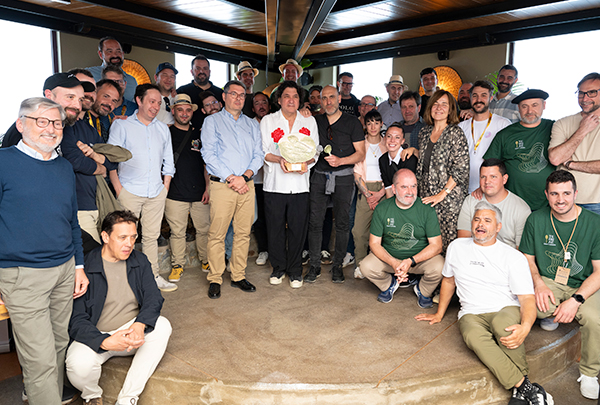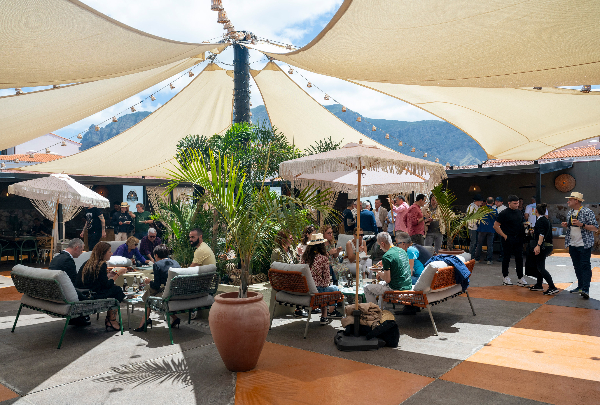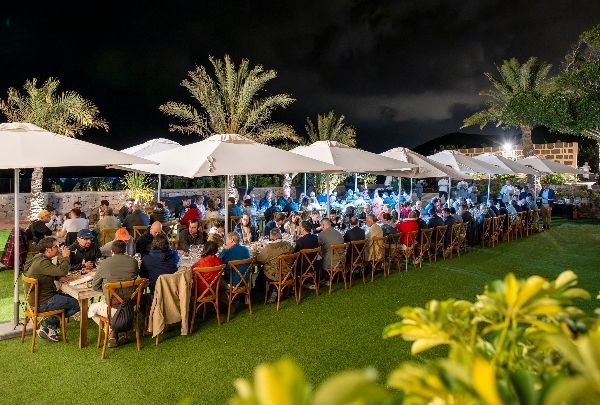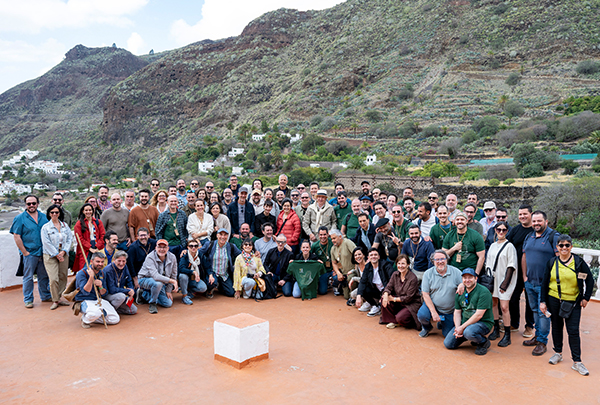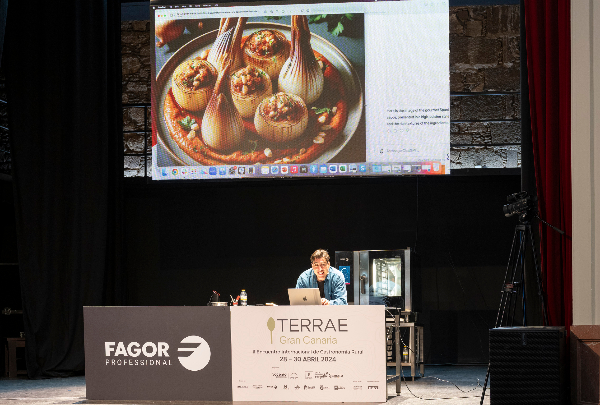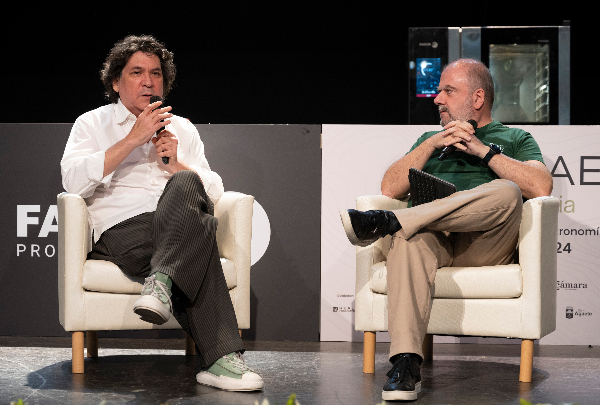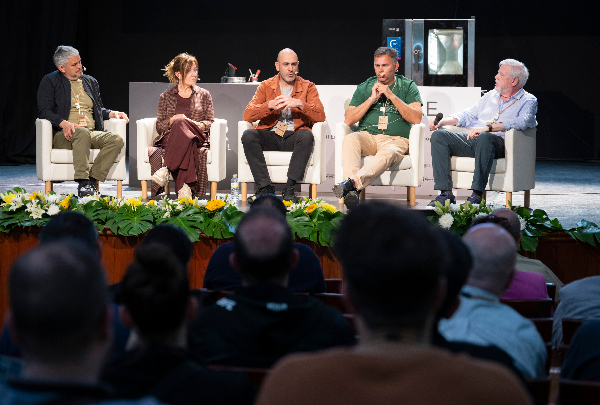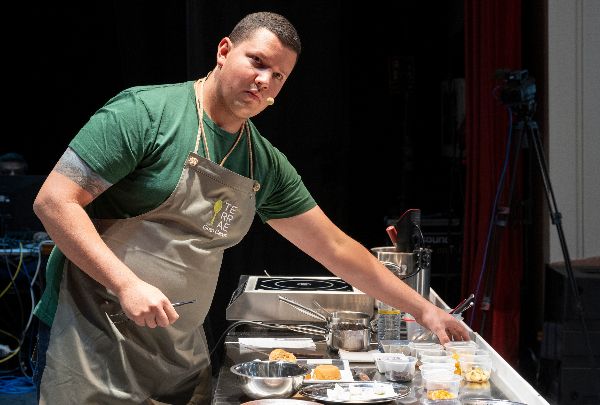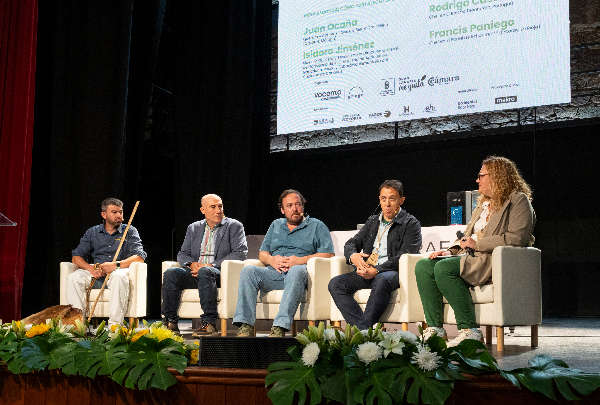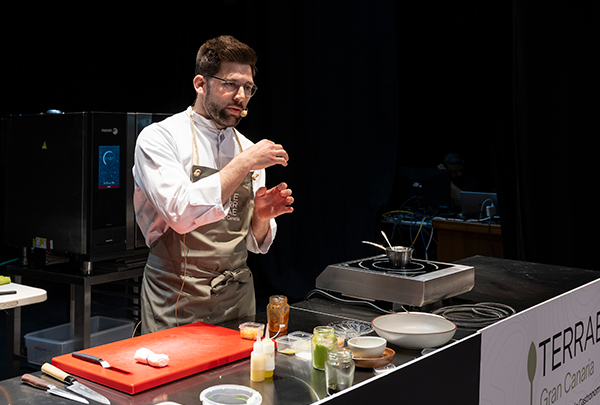News
Rural restaurants: as good as they are necessary

With more than 40 rural chefs discussing their present and future, the second edition of Terrae opened in Gáldar, once the first capital of Gran Canaria.
And between complaints and suggestions, Pepe Ron (Bar Blanco, Cangas del Narcea, Asturias) summed up with a vindicating phrase: "Rural restaurants are as good as they need to be, you don't have to be in Madrid or Barcelona to make fair, honest and seasonal cuisine".
In a constituent assembly to elect the mayor of rural chefs, Gastón Acurio, who will be an adopted son of Terrae, opened the fire, the main promoter of Peruvian cuisine, defender of the relationship between chefs and producers and of the motto "not to compete but to share", a legacy he wants to pass on to the younger members of the sector.
The most experienced chefs know how important it is to maintain a close relationship with the primary sector, such as Roberto Ruiz (Hika Gastronomiko, Villabona, Guipúzcoa), who recalls that in the past, commitment to the environment was "habitual because there was nothing else". But things have changed, and Luis Alberto Lera (Lera, Castroverde de Campos, Zamora) wondered: "How is it possible that we have done things so badly that 35 years ago we could cook our environment and today we cannot?
Maria Solivellas (Ca na Toneta, Caimari, Mallorca), an example of work in favour of her territory, also spoke about the lack of cooperation from the administrations to facilitate the work of rural restaurants. She called for Terrae to be the seed of "an association to work together: what we need, what our shortcomings are and try to solve problems, especially with the administration".
Nandu Jubany (Can Jubany, Calldetenes, Barcelona) took the same line: "We are not aware of the strength we have together. The government doesn't take us into account, and without us the GDP will fall. We have to be a little tougher, because together we provide a lot of food and we don't value it".
Edorta Lamo (Arrea!, Campezo, Álava) emphasised "this monumental failure of the institutions" against the primary sector, instead of "helping the land" and the trades "behind the backs of the cooks". He therefore defended Terrae as a place to "get angry, discuss, make noise and go to Europe with the elected mayor".
And to support the farmers who are still on the warpath in their demands, "because without them we are nothing", declared Joan Capilla, from L'Algadir del Delta (Poblenou del Delta, Tarragona), who also referred to the consequences of climate change on the primary sector and therefore on the cuisine.
Ignacio Echapresto (Venta Moncalvillo, Daroca de Rioja, La Rioja) even called for the creation of councils for river or mycological cuisine, in addition to the Mayor's Office for Rural Cuisine, in order to "promote forgotten products that make our cuisine unique".
Ignacio Solana (Solana, Ampuero, Cantabria) expressed his hope that rural cuisine would be able to inspire the next generations and prevent its protagonists from migrating to the cities, and Francis Paniego (Portal del Echaurren, Ezcaray, La Rioja) spoke of the "real drama" suffered by rural areas, which must be confronted with "attractive discourses".
In a constituent assembly to elect the mayor of rural chefs, Gastón Acurio, who will be an adopted son of Terrae, opened the fire, the main promoter of Peruvian cuisine, defender of the relationship between chefs and producers and of the motto "not to compete but to share", a legacy he wants to pass on to the younger members of the sector.
The most experienced chefs know how important it is to maintain a close relationship with the primary sector, such as Roberto Ruiz (Hika Gastronomiko, Villabona, Guipúzcoa), who recalls that in the past, commitment to the environment was "habitual because there was nothing else". But things have changed, and Luis Alberto Lera (Lera, Castroverde de Campos, Zamora) wondered: "How is it possible that we have done things so badly that 35 years ago we could cook our environment and today we cannot?
Maria Solivellas (Ca na Toneta, Caimari, Mallorca), an example of work in favour of her territory, also spoke about the lack of cooperation from the administrations to facilitate the work of rural restaurants. She called for Terrae to be the seed of "an association to work together: what we need, what our shortcomings are and try to solve problems, especially with the administration".
Nandu Jubany (Can Jubany, Calldetenes, Barcelona) took the same line: "We are not aware of the strength we have together. The government doesn't take us into account, and without us the GDP will fall. We have to be a little tougher, because together we provide a lot of food and we don't value it".
Edorta Lamo (Arrea!, Campezo, Álava) emphasised "this monumental failure of the institutions" against the primary sector, instead of "helping the land" and the trades "behind the backs of the cooks". He therefore defended Terrae as a place to "get angry, discuss, make noise and go to Europe with the elected mayor".
And to support the farmers who are still on the warpath in their demands, "because without them we are nothing", declared Joan Capilla, from L'Algadir del Delta (Poblenou del Delta, Tarragona), who also referred to the consequences of climate change on the primary sector and therefore on the cuisine.
Ignacio Echapresto (Venta Moncalvillo, Daroca de Rioja, La Rioja) even called for the creation of councils for river or mycological cuisine, in addition to the Mayor's Office for Rural Cuisine, in order to "promote forgotten products that make our cuisine unique".
Ignacio Solana (Solana, Ampuero, Cantabria) expressed his hope that rural cuisine would be able to inspire the next generations and prevent its protagonists from migrating to the cities, and Francis Paniego (Portal del Echaurren, Ezcaray, La Rioja) spoke of the "real drama" suffered by rural areas, which must be confronted with "attractive discourses".


